Tame Impala wins five awards at the 2020 ARIAs for The Slow Rush
Tame Impala should have been disqualified from the best group category. The fact Kevin Parker’s solo project walked away with the gong is a failure by ARIA
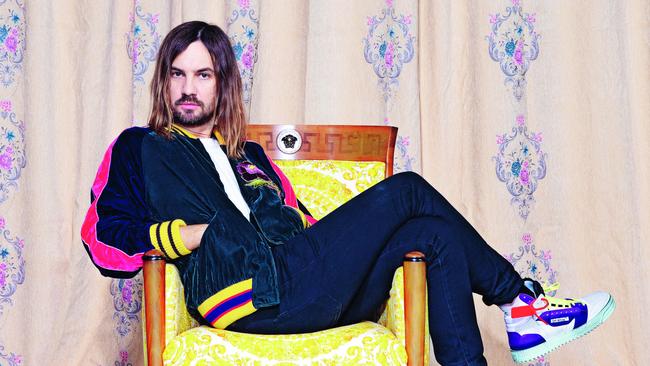
In a year when so many musicians were forced away from the stage and into isolation, it was oddly satisfying and fitting that the ARIA award for album of the year went to a record crafted by one man alone in a room.
That man is Kevin Parker, the West Australian musician who came to national prominence under his stage name Tame Impala in 2010. And that album is The Slow Rush, an ironic title given Parker’s preference for painstaking self-engineering, self-recording and self-producing. Nothing in his creative orbit is rushed, ever.
Across the past decade, the 34-year-old singer-songwriter has evolved beyond his earlier fascination with psychedelic-tinged rock ’n’ roll in favour of writing layered, synthesiser-heavy electronic pop, with particular emphasis placed on penning spry bass lines and finetuning drum sounds.
The fourth Tame Impala album is the apogee of this stylistic shift: it is composed of 12 tracks and 57 minutes of dreamy, propulsive pop music.
On its release in February, pre-pandemic, it had the feel of a career-best work and an instant classic album for all seasons. It made its debut at No 1 here and No 3 in the US and Britain; nine months later, it continues to crackle with urgency, vitality and a sense of timelessness.
Not only did Parker write and perform every sound heard on The Slow Rush — other than a couple of brief vocal samples, including a cameo from his wife — but he also exerted control over every aspect of its creation.
For this he was rewarded with a rare triple accolade: not only the ARIA for album of the year but also ARIAs for engineer of the year and producer of the year for the same work, which Parker recorded in Los Angeles and Fremantle. The last person to manage that feat? Himself, in 2015.
The Slow Rush also was named best rock album. But, confusingly, Tame Impala’s fifth ARIA for the night was for best group, ahead of four acts that contain multiple musicians.
Tame Impala does not: it’s a one-man effort everywhere but in the live arena, where Parker is joined on stage by four bandmates who help produce the beautiful noise that recording technology allows him to conjure by himself in the studio.
As Parker tells it, he initially presented Tame Impala as a trio because he was too shy to take all the credit himself, especially for a solo project designed to sound like a band. Accordingly, and dishonestly, his was one of three signatures on the first record contract he signed in 2008.
But since the beginning, this home recording project has been all Parker, all the time. It’s only in recent years that the marketing caught up to the reality.
Make no mistake, though: the fact Parker’s solo project walked away with the best group statue is a failure on behalf of the Australian Record Industry Association, which should have disqualified Tame Impala from the category.
Worse, this was no aberration, as Parker has won best group twice before: seven years ago for Lonerism and five years ago for Currents, both of which were also named album of the year and best rock album in 2013 and 2015, respectively.
At the risk of belabouring this point: words have meaning. More than an oversight by the peak industry body, a solo act winning the group category is a significant disservice to multi-member nominees Lime Cordiale, 5 Seconds of Summer, the Teskey Brothers and DMA’S. Three times is more than enough, ARIA; time to close this embarrassing loophole.
Hosted by pop singer-songwriter Delta Goodrem at The Star in Sydney, the first ARIA Awards to take place in the absence of a live audience capped the most unusual and challenging year in Australian music history.
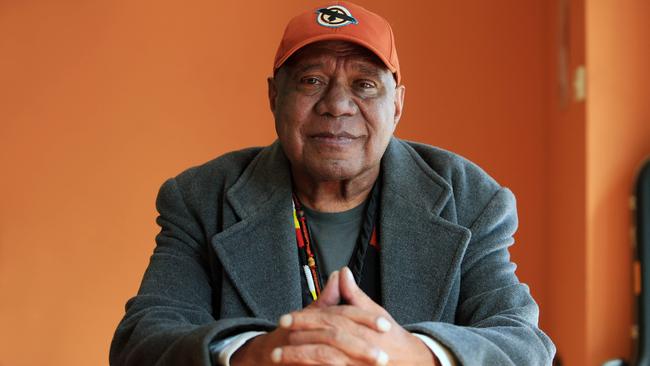
With viewers tuning in remotely via the Nine Network and YouTube, a substantial proportion of the night’s virtual applause was directed towards another master singer-songwriter in Archie Roach.
Three decades after the release of his debut album Charcoal Lane, Roach was inducted into the ARIA Hall of Fame on the same night that he was named best male artist and received the award for best adult contemporary album for his collection Tell Me Why. Though Roach has never been a raging commercial success — Tell Me Why made its debut at No 7 last year, the highest chart position of his career — he has long been a quiet achiever and is an artist whose cultural and historical significance is more resonant than that of just about anyone who has ever picked up an instrument or stepped up to a microphone on these shores.
The pure, soulful voice heard in his earliest recordings have since been replaced by the weathered voice of a 64-year-old missing half a lung, yet as one of the most prominent members of the Stolen Generations to put his life story into words — and set to music — Roach’s contribution is immeasurable. He is the definition of a national treasure, and it was a joy to see his life’s work acknowledged on the biggest stage in Australian music.
After becoming the first woman of colour to win the best hip-hop release category last year, Melbourne-based Sampa Tembo — who performs as Sampa the Great — replicated her success with debut album The Return, while also taking out the best female artist and best independent release categories.
Gold Coast artist Amy Shark won best pop release for her single Everybody Rise; Woorabinda, Queensland-born singer-songwriter Miiesha won best soul/R&B release for her debut EP Nyaaringu; and Sydney sibling duo Lime Cordiale was successful in only one of the eight categories the brothers were nominated in: breakthrough artist.
In the best country album category, NSW singer-songwriter Fanny Lumsden was third time lucky with her third album, Fallow, having been nominated for her two previous releases.
The best children’s album prize went to Melbourne sister duo Teeny Tiny Stevies for their third album, Thoughtful Songs for Little People.
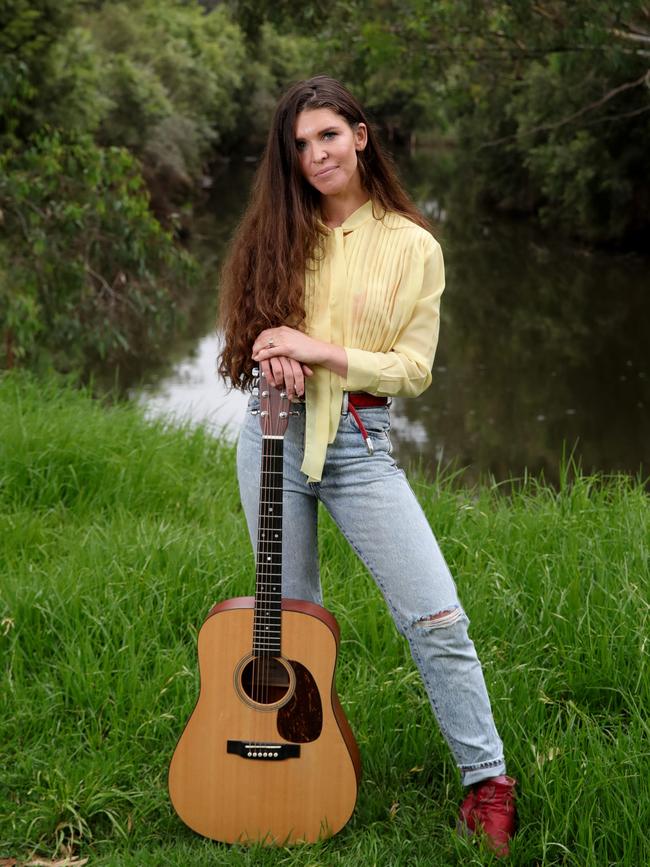
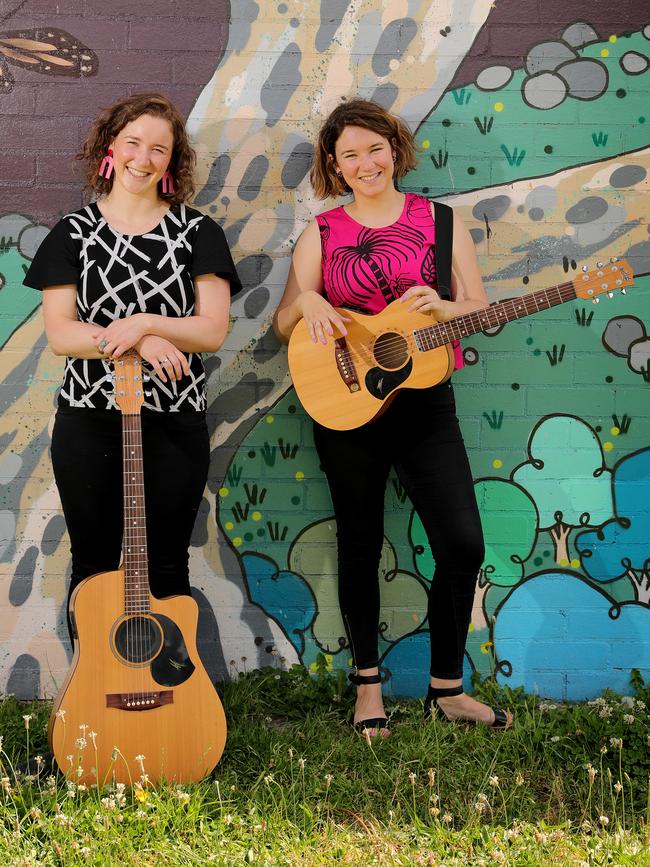
Among the public-voted awards, Sydney-born pop quartet 5 Seconds of Summer picked up its only accolade of the night when Teeth was named song of the year. Best video went to Guy Sebastian for Standing With You, Shark was named best Australian live act, best international artist went to British performer Harry Styles, and Sarah Donnelley of Wilcannia Central School won the music teacher award.
While the ARIA Awards traditionally are centred on celebrating excellence in recorded music — particularly the enduring album format, even in a streaming era where listening habits are more focused on single songs than ever — what happens in the studio is only half of the true picture for most artists.
What happens on stage is where most of their money is made, and the venue closures stemming from the pandemic has resulted in most musicians watching on helplessly as their usually reliable live performance income has been wiped out for six months or more.
Naturally enough, this has led to plenty of anxiety about an already precarious career choice.
This time next year, hopefully we’ll see the next ARIA Awards — before a live audience once again — celebrating a surplus of art as rich, intricate and rewarding as The Slow Rush.
As Parker showed with his third collection to be named Australian album of the year, better to take the time to get it right rather than rush it.
2020 ARIA winners:
Album of the year Tame Impala, The Slow Rush
Male artist Archie Roach
Female artist Sampa the Great
Group Tame Impala
Breakthrough artist Lime Cordiale
Rock album Tame Impala, The Slow Rush
Adult contemporary album Archie Roach, Tell Me Why
Country album Fanny Lumsden, Fallow
Hard rock/heavy metal album King Gizzard & The Lizard Wizard, Chunky Shrapnel
Blues & roots album The Teskey Brothers, Live at The Forum
Children’s album Teeny Tiny Stevies, Thoughtful Songs for Little People
Pop release Amy Shark, Everybody Rise
Hip-hop release Sampa the Great, The Return
Soul/R&B release Miiesha, Nyaaringu
Independent release Sampa the Great, The Return
Dance release Dom Dolla, San Frandisco
Comedy release Anne Edmonds, What’s Wrong With You?
Public-voted awards:
Video Guy Sebastian, Standing With You
Song of the year 5 Seconds of Summer, Teeth
Australian live act Amy Shark
International artist Harry Styles
Music teacher Sarah Donnelley, Wilcannia Central School, Wilcannia NSW
Artisan awards:
Cover art Adam Dal Pozzo, Megan Washington and Michelle Pitiris for Washington, Batflowers
Engineer of the year Kevin Parker for Tame Impala, The Slow Rush
Producer of the year Kevin Parker for Tame Impala, The Slow Rush
Fine arts awards:
Classical album Richard Tognetti & Erin Helyard, Beethoven & Mozart Violin Sonatas
Jazz album Paul Kelly & Paul Grabowsky – Please Leave Your Light On
Original soundtrack or musical theatre cast album Chelsea Cullen – I Am Woman (Original Motion Picture Soundtrack)
World music album Joseph Tawadros – Live at the Sydney Opera House



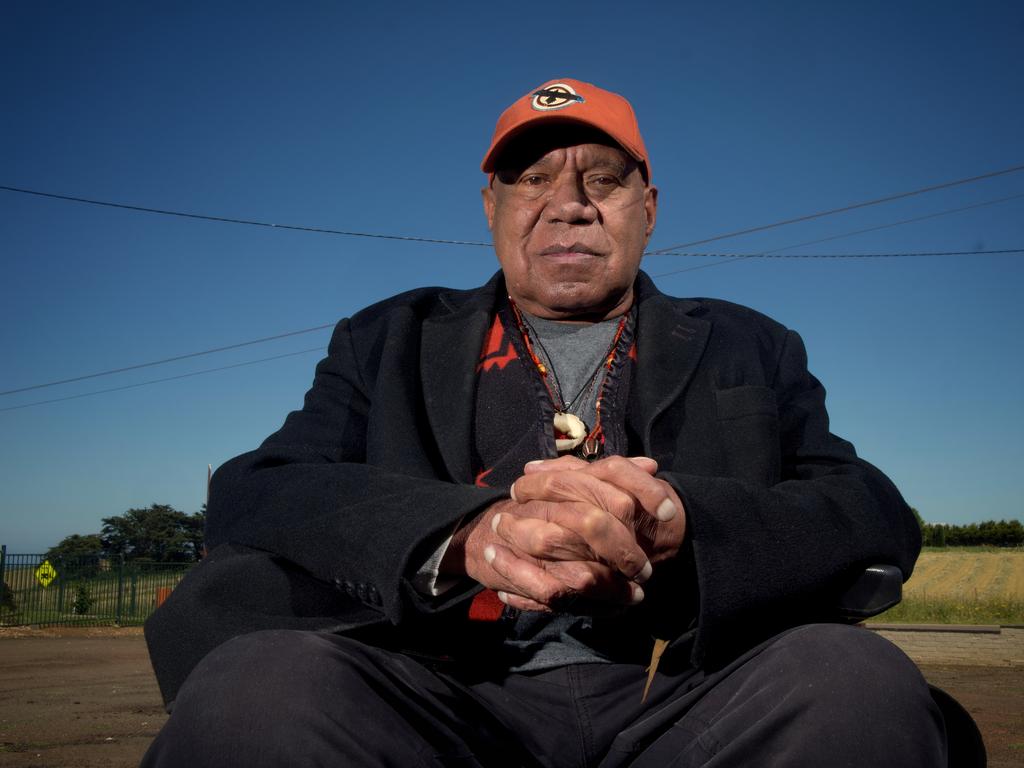


To join the conversation, please log in. Don't have an account? Register
Join the conversation, you are commenting as Logout